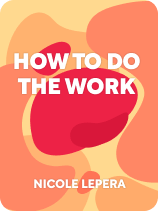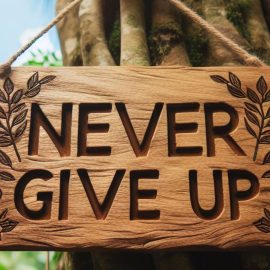

This article is an excerpt from the Shortform book guide to "How to Do the Work" by Nicole LePera. Shortform has the world's best summaries and analyses of books you should be reading.
Like this article? Sign up for a free trial here.
What are some of the effects of a traumatic childhood? How does it shape you as an adult?
According to holistic psychologist Nicole LePera, traumas in childhood take many forms, including feeling unloved or powerless as a child. LePera found that those who experienced such feelings in childhood displayed certain self-destructive patterns as adults.
Keep reading to learn how a traumatic childhood could still be impacting you as an adult, according to LePera.
A Traumatic Childhood & Defensive Behaviors
Many people engage in self-sabotaging patterns that prevent them from being happy. Despite their efforts to change, they end up reverting to their unwanted behaviors and feel powerless to adopt healthier patterns. According to holistic psychologist and bestselling author Nicole LePera, such patterns stem from a traumatic childhood that’s been left unresolved.
In her book, How to Do the Work, LePera argues that you can live a healthier, happier life by taking control of your self-destructive patterns. The key to overcoming unwanted patterns lies in addressing childhood traumas.
LePera argues that, whenever your parents made you feel unloved and insecure, you felt extreme pain and discomfort. Since you couldn’t escape your traumatic childhood and hadn’t yet developed the emotional skills to cope with your inner turmoil, you adopted defensive beliefs and behaviors to avoid feeling your pain and prevent similar painful situations from occurring.
Further, since you relied on your parents to teach you how to think, feel, and behave, you adopted the same defensive beliefs and behaviors that they used to cope with their pain.
Example: How You Developed Defensive Beliefs and Behaviors
Let’s look at an example of traumatic childhood experiences: Every time your parents fought, your father would withdraw both emotionally and physically—by acting cold and distant or staying away from home. Meanwhile, your mother would stay at home and take her frustrations out on you and your siblings.
To avoid feeling the emotional discomfort this situation created, you might have:
- Withdrawn into yourself: This mirrored your father’s defensive behavior—instead of resolving the situation with your mother, he chose to escape and hide from her. Adopting this behavior led you to believe something akin to: “I won’t feel pain if I avoid unnecessary interactions.”
- Started a fight with your siblings: This mirrored your mother’s defensive behavior—because she couldn’t confront your father, she vented her anger out on you and your siblings. Adopting this behavior led you to believe something akin to: “I won’t feel pain if I turn it into anger.”
| Your Interpretation of Experiences Influences Your Beliefs and Behaviors In Psycho-Cybernetics, Maxwell Maltz suggests that the conditioning process isn’t as simple as LePera makes it out to be. He argues that you didn’t automatically adopt your parents’ beliefs and behaviors. Rather, the way you interpreted your experiences determined the beliefs and behaviors you adopted. For example, if you experienced a traumatic childhood due to your mother taking her frustrations out on you, you could have interpreted this experience in multiple ways: – Though you experienced pain, you understood that her anger had nothing to do with you personally. As a result, you didn’t adopt any defensive beliefs or behaviors. – You assumed that you were the cause of her anger and felt shame or guilt. As a result, you adopted the defensive belief that you must act perfectly to appease others and avoid conflict. – You concluded that she was an abusive tyrant that you couldn’t appease. As a result, you adopted the belief that you were powerless to change the way she treated you and made no effort to avoid her anger. According to Maltz, though your mother used anger to cope with her pain, you didn’t automatically mirror her anger as LePera suggests. Only the way you interpreted your mother’s treatment of you determined what defensive beliefs and behaviors you adopted. |

———End of Preview———
Like what you just read? Read the rest of the world's best book summary and analysis of Nicole LePera's "How to Do the Work" at Shortform.
Here's what you'll find in our full How to Do the Work summary:
- How childhood conditioning impacts your mental and physical health
- How to develop positive patterns that improve your well-being
- Tools to feel happier, healthier, and more in control of your life






